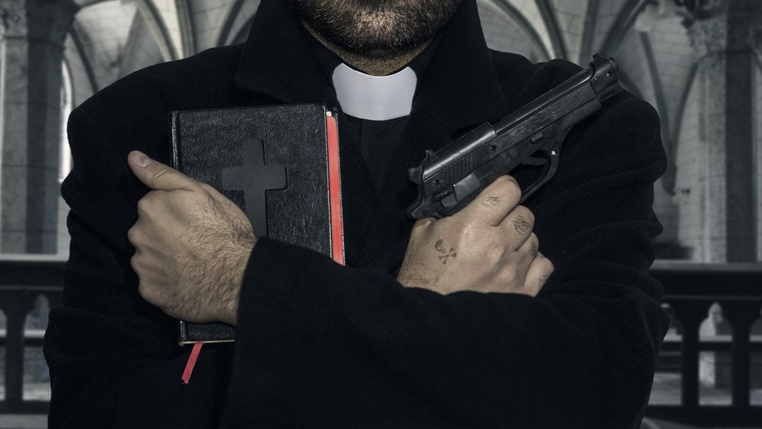In addition to the presidential race, various Congressional and state level races that will be decided this November, there are a number of important statewide constitutional amendments, propositions and other laws being decided in a number of states.
Ballotpedia compiled a comprehensive list of the issues being voted upon in each state on November 3. If you don’t want to wade through all 120 questions, however, we’ve highlighted the eight most important, problematic and strangest statewide issues this Election Day.
Guns in Alabama churches
Come next year, pastors and parishioners might be packin’.
Constitutional Amendment 5 and Amendment 6 would extend Alabama’s “stand your ground” law to churches in Franklin and Lauderdale counties. Basically, approving these amendments would let people bring guns to church. The idea is that churchgoers should be able to defend themselves against active shooters, as happened during a church shooting in White Settlement, Texas last December.
Marijuana in Arizona, Mississippi, Montana, New Jersey, and South Dakota
Several states have votes on marijuana on the November ballot. Citizens of Arizona, Montana and New Jersey will have the chance to legalize recreational weed use, while Mississippi will ask voters if they want to legalize medical marijuana. South Dakota, meanwhile, has separate questions on both medical and recreational marijuana.
Affirmative Action in California
California voters banned Affirmative Action in public employment and education in 1996. The evidence since then clearly shows that the ban has harmed Black and Hispanic students without greatly benefiting white or Asian-American students. As Blavity previously reported, Proposition 16 would overturn this ban if passed, allowing government agencies and the state’s public universities to consider race, ethnicity and sex in hiring and admissions.
Criminal justice reforms in California and Oklahoma
If a ‘yes’ vote wins, Oklahoma’s Question 805 would ease sentencing procedures for non-violent felony convictions. California, meanwhile, has two criminal justice-related questions on the ballot. Passing Proposition 20 would be tougher on certain crimes, while Proposition 25 would get rid of cash bail, which disproportionately keeps poor and Black people locked up after arrest. Finally, California Proposition would restore voting rights to parolees.
Abortion in Colorado and Louisiana
Colorado’s Proposition 115 proposes making it illegal for doctors to perform abortions for fetuses past 22 weeks of gestation (there is no current limit in the state on when abortions can be performed). The law would fine doctors who perform non-life saving abortions after this time period. Louisiana’s vote, meanwhile, will establish that the state’s constitution does not guarantee a right to abortion services. This may not have an immediate impact on the right to choose within the state, but could become relevant if Roe v. Wade is overturned by the increasingly conservative Supreme Court.
Minimum wage in Florida
Florida is voting on whether or not to raise the state’s minimum wage. Amendment 2 would raise the state’s minimum hourly wage by $1 per year until it reaches $15 in 2026. Orlando attorney John Morgan, who championed the amendment through his Florida for a Fair Wage organization, has called the state’s current minimum wage ($8.46/hour) “slave wages.”
New flag in Mississippi
Earlier this year, Mississippi finally got rid of its state flag, which prominently featured the Confederate Flag as part of its design. This November, citizens will be voting on a possible replacement, called the “In God We Trust” flag because it features the phrase.
Slavery – yes, slavery -- in Nebraska, Utah
You know how the 13th Amendment to the US Constitution bans slavery “except as punishment for crime?” (No really, look it up). Well, the state constitutions of Nebraska and Utah also include this slavery loophole. While we don’t quite need to set up an Underground Railroad through these states, their folks have decided that technically allowing slavery to exist is not a good look in 2020. Nebraska’s Amendment 1 and Utah’s Constitutional Amendment C would remove the slavery language from these states’ constitutions.
With all these decisions on ballots across the country, voters around the nation have the opportunity to make a number of changes both symbolic and potentially life-altering for Black Americans and for the large chunks of the country.
